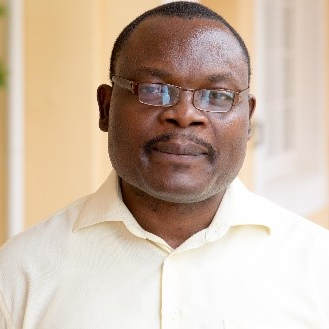NEF Fellow

Wilfred Ndifon
Country:Cameroon
Area of Research:Biological Sciences
Institution:African Insitute for Mathematical Sciences (AIMS)
Wilfred Ndifon as born in the town of Buea, Cameroon. He developed a strong interest in solving health-related problems at an early age, and went to the United States, on scholarship, to study medicine. While there, Wilfred developed an appreciation for the importance of mathematics in solving the problems that he was interested in addressing. He therefore decided to pursue advanced studies in the applications of mathematics, and attended Princeton, where he enrolled in a PhD program in biological dynamics that emphasised rigorous training at the interface of mathematics, physics, and biology.
The central focus of Wilfred’s research is the immune system — an extremely complex system of cells, tissues, and organs that protects us against diseases. Based on its job description, the immune system is mostly beneficial, but it sometimes malfunctions and becomes detrimental. Understanding the mechanisms that govern the functioning of the immune system is key to enhancing its ability to protect us against diseases (e.g. by designing vaccines), and bringing it back in line when it malfunctions. His research seeks to advance this understanding by applying mathematical thinking to the design of experiments that probe specific aspects of the immune system, and also to the interpretation of data. Applications being pursued include the design of an improved vaccine for malaria, and the development of technologies for predicting immunological predisposition to specific diseases so that they can be prevented before symptoms appear.
Wilfred has experience in developing technologies for designing vaccines and for monitoring certain molecular sensors (called T-cell receptors) that help to protect individuals against diseases. His previous research results have practical implications for solving health-related problems that exist in Africa, notably in relation to vaccine design. These results include the independent discovery (published in the Proceedings of the National Academy of Sciences of the USA) of an organising principle of the influenza virus, which protects the virus against neutralization by the immune system and provides a new way to design improved vaccines; and a novel solution, published in the Journal of the Royal Society Interface, to a 70 year-old immunological puzzle called original antigenic sin, which also has implications for improving vaccines. Building on this research experience, he recently served as an adviser to the World Health Organisation’s Immunization and Vaccines related Implementation Research Advisory Committee.
